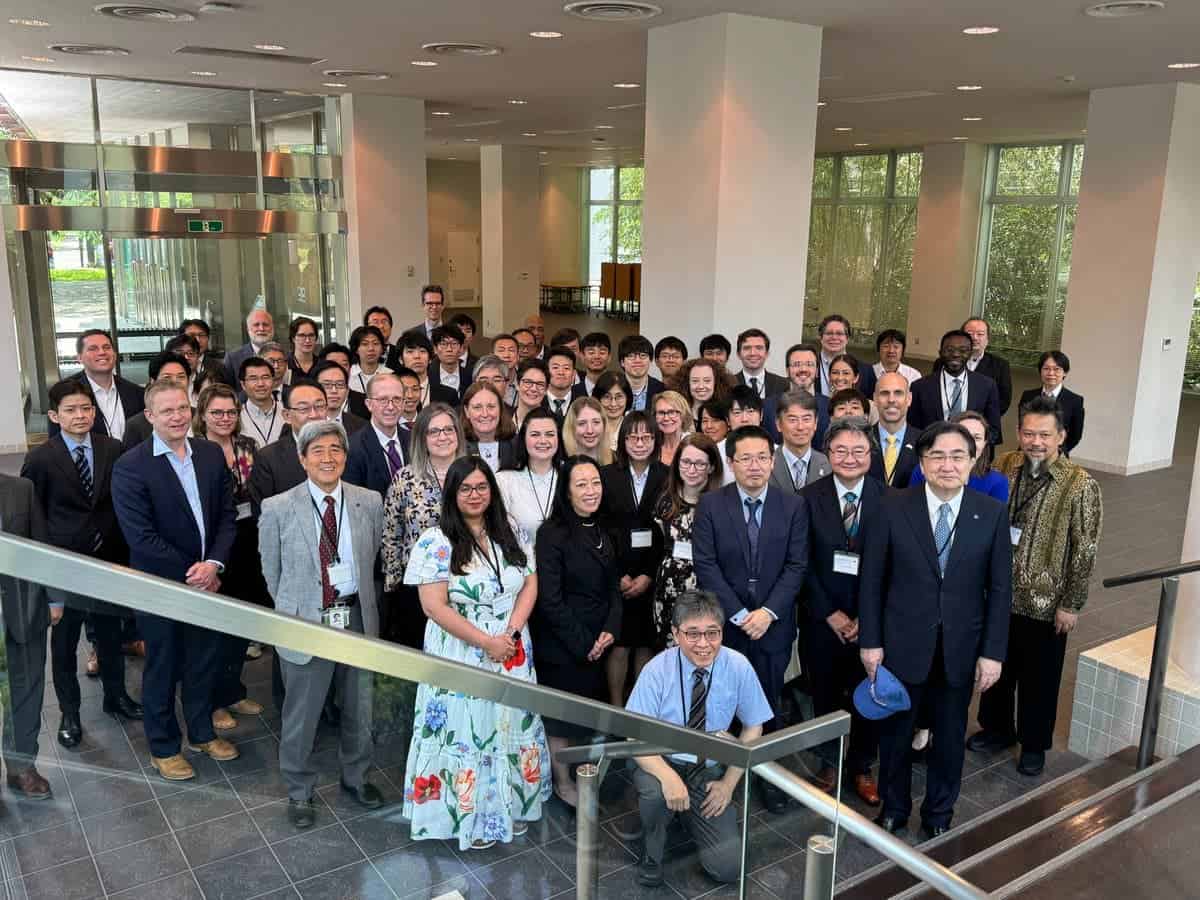
Fastest Path workshop explored the future of advanced nuclear energy in Japan and the U.S.
Workshop discussions centered on energy policies, deployment scenarios, economic impacts, and gender balance in the nuclear sector.

Workshop discussions centered on energy policies, deployment scenarios, economic impacts, and gender balance in the nuclear sector.
Last week, the vibrant city of Sendai, Japan, became a hub for nuclear energy experts, policymakers, and stakeholders from Japan and the United States. The University of Michigan’s Fastest Path to Zero Initiative, in collaboration with the U.S. Consulate in Sapporo, the Center for Research on Nuclear Decommissioning at Tohoku University, and the Atlantic Council, hosted a workshop to explore the potential of advanced nuclear reactor technologies in achieving decarbonization and economic development in both countries.
The workshop, Potential Contribution of Advanced Nuclear Energy Technologies to the Decarbonization and Economic Development of Japan and the U.S., gathered a diverse group of participants including academic experts, nuclear reactor developers, utility executives, policymakers, and leaders of non-governmental organizations, who engaged in discussions on energy policies, deployment scenarios, economic impacts, and gender balance in the nuclear sector.
“Events like this are important to bring people together. The future of advanced nuclear is on a very positive trajectory to enhancing global energy security and mitigating the impacts of climate change,” said Joe Miller, President of BWXT, one of the workshop attendees.
Participants consistently highlighted two main concerns: the need for workforce development and the importance of increased cooperation between Japan and the U.S. in various areas, from technical design to community engagement. “I was impressed that the range of participants, from university to industry to government, saw strong value in building stronger collaborations between Japan and the United States in the international deployment of advanced nuclear energy,” noted Fastest Path director Todd Allen.
The workshop began with welcome remarks from representatives of the hosting organizations and the U.S. Government, setting the stage for two days of intensive discussions. Speakers outlined clean energy goals and the crucial role of nuclear energy in achieving these objectives in the U.S. and beyond.
One session focused on the clean energy goals, policies, and commitments in both the U.S. and Japan, addressing their international implications. Speakers discussed how advanced nuclear technologies could play a pivotal role in the clean energy transition and economic development.
In another session, participants were introduced to various advanced reactor types, including small modular reactors—or SMRs—and microreactors in the U.S., and high-temperature gas-cooled reactors in Japan. The session highlighted the enhanced safety, efficiency, and flexibility of these reactors, which can be factory-built and easily transported.
A session titled “Potential Deployment Scenarios for Advanced Nuclear Technologies” explored innovative reactor designs and potential deployment scenarios. Topics included repurposing existing fossil generation sites with SMRs, combining electricity production with thermal energy storage, and using microreactors for remote sites and emergency needs.
“The workshop participants saw a lot of value in comparing differences in practices and policies across the two countries and learning from each other, said Fastest Path assistant professor Aditi Verma. “A recurring theme expressed by participants across all breakout groups was the need for earlier and better public engagement, including as early as the technology design and development phase. We see strong potential for collaboration here between the two countries.”
One crucial plenary session, specifically requested by the U.S. Consulate in Sapporo, focused on recruiting and retaining women in the nuclear energy field, drawing on the key findings of the recent OECD report “Gender Balance in the Nuclear Sector.” Five women nuclear professionals, representing nuclear academia and industry in both Japan and the United States, addressed gender-based challenges in the nuclear workplace and offered thoughts on how to create more supportive work environments.
“The panelists generously and vulnerably shared their personal experiences and powerfully illustrated some of the structural barriers that women—and other marginalized professionals—face in the nuclear workplace,” said Denia Djokić, a Fastest Path research scientist and panel moderator. “This conversation highlighted the factors contributing against, and indispensably needed for, more inclusive and affirming institutional cultures and safer environments for all.”
Participants divided into breakout groups to delve deeper into three specific topics: the design aspects of advanced reactors, potential deployment scenarios, and the economic impacts of advanced nuclear technologies. Each group discussed the intricacies of their respective topics, sharing insights and developing strategies for future collaboration.
The final session summarized the breakout group findings, providing insights into clean energy policies and economic development. Allen and Yutaka Watanabe, a professor at Tohoku University, then shared their reflections on the workshop and proposed a path forward, emphasizing the importance of continued collaboration between Japan and the U.S. To conclude the workshop, students from both institutions shared their learning experiences, highlighting the workshop’s impact on the next generation of nuclear engineers.
Reflecting on the workshop, the Fastest Path team was encouraged by the level of engagement and the potential for future collaboration. “This workshop has successfully stimulated a number of ideas for future collaboration in the areas of clean energy policy and nuclear energy’s role in combating climate change,” said Fastest Path business manager Barbara Peitsch.
“I want to extend my heartfelt thanks to everyone who attended and contributed to the success of this workshop,” said Allen. “Your engagement and insights have been invaluable. A special thank you to Barbara Peitsch, our main point person on the Fastest Path team, whose dedication and hard work were pivotal in planning and coordinating this event. Thank you all for your commitment to advancing nuclear energy technologies and fostering collaboration between Japan and the U.S.”
Moving forward, the Fastest Path to Zero Initiative hopes to lead the formation of follow-up conversations, workshops, and initiatives, continuing the collaboration with future reverse exchanges and joint research. The success of this event in Sendai paves the way for future collaborations and initiatives that will contribute to global energy security and the fight against climate change.